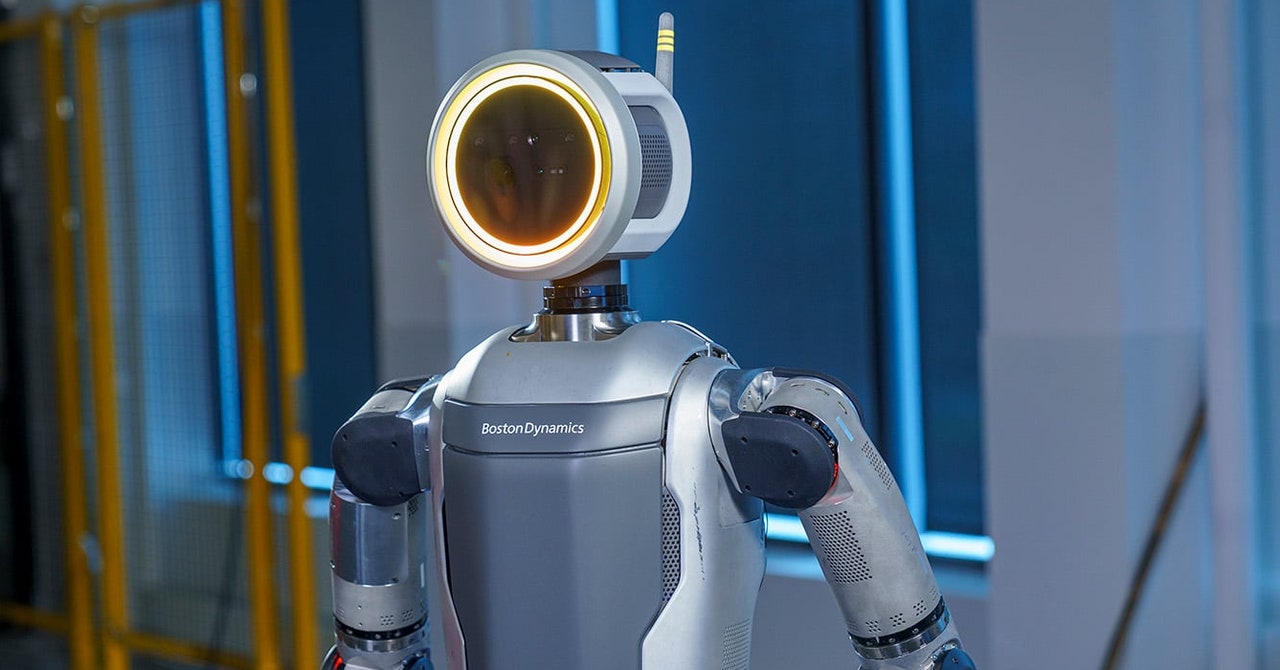
You don’t must have been petrified by Arnold Schwarzenegger’s Skynet-commissioned cyborg murderer in 1984’s The Terminator to worry that super-strong, all-terrain, bipedal humanoid robots sprinting up steps, pulling backflips, and righting themselves could possibly be programmed to interrupt our necks on sight. (And laser weapons, by no means give them laser weapons.)
With the Outdated Atlas, we might consolation ourselves with the notion that intelligent modifying meant Atlas wasn’t as self-righting over tough floor as the unique viral movies portrayed. The pratfalls within the retirement video show that hunch was right. Nonetheless, immediately’s video may effectively resurrect any robotic overlord fears you’ll have since suppressed. This factor is horrifying, and never simply because it has a ringlight for a face. (Who had “Robotic YouTube influencer” on their 2024 bingo card?)
It was good understanding you, Outdated Atlas—you superior, pratfalling, parkouring, metallic man machine.
Scary, too, in the event you’re an Amazon warehouse employee, as a result of the New Atlas might try this job with one three-fingered hand tied behind its matte grey robotic again. Extra probably, nonetheless, is that Hyundai—which purchased Boston Dynamics in 2020, valuing it at $1 billion—might quickly set Atlas to work in its automotive factories. The “journey will begin with Hyundai,” confirmed Boston Dynamics in a statement asserting the All New Atlas launch.
Once more, no particulars have been launched, however we are able to surmise that the brand new Atlas will probably be given boring, repetitive duties within the Korean firm’s factories moderately than, say, laser welding. (Keep in mind, hold lasers away from robotic butlers.)
Hyundai isn’t the one firm planning to make use of humanoid robots as employees. Beating Tesla’s still-in-development Optimus line of humanoid robots, Sanctuary AI of Canada introduced on April 11 that it could be delivering a humanoid robot to Magna, an Austrian automotive agency that assembles automobiles for Mercedes, Jaguar, and BMW.
And Californian robotics startup Determine introduced in February that it had raised $675 million from buyers resembling Nvidia, Microsoft, and Amazon to work with OpenAI on generative synthetic intelligence for humanoid robots.
A general-purpose humanoid robotic that may study on the fly. What might presumably go improper with that?







